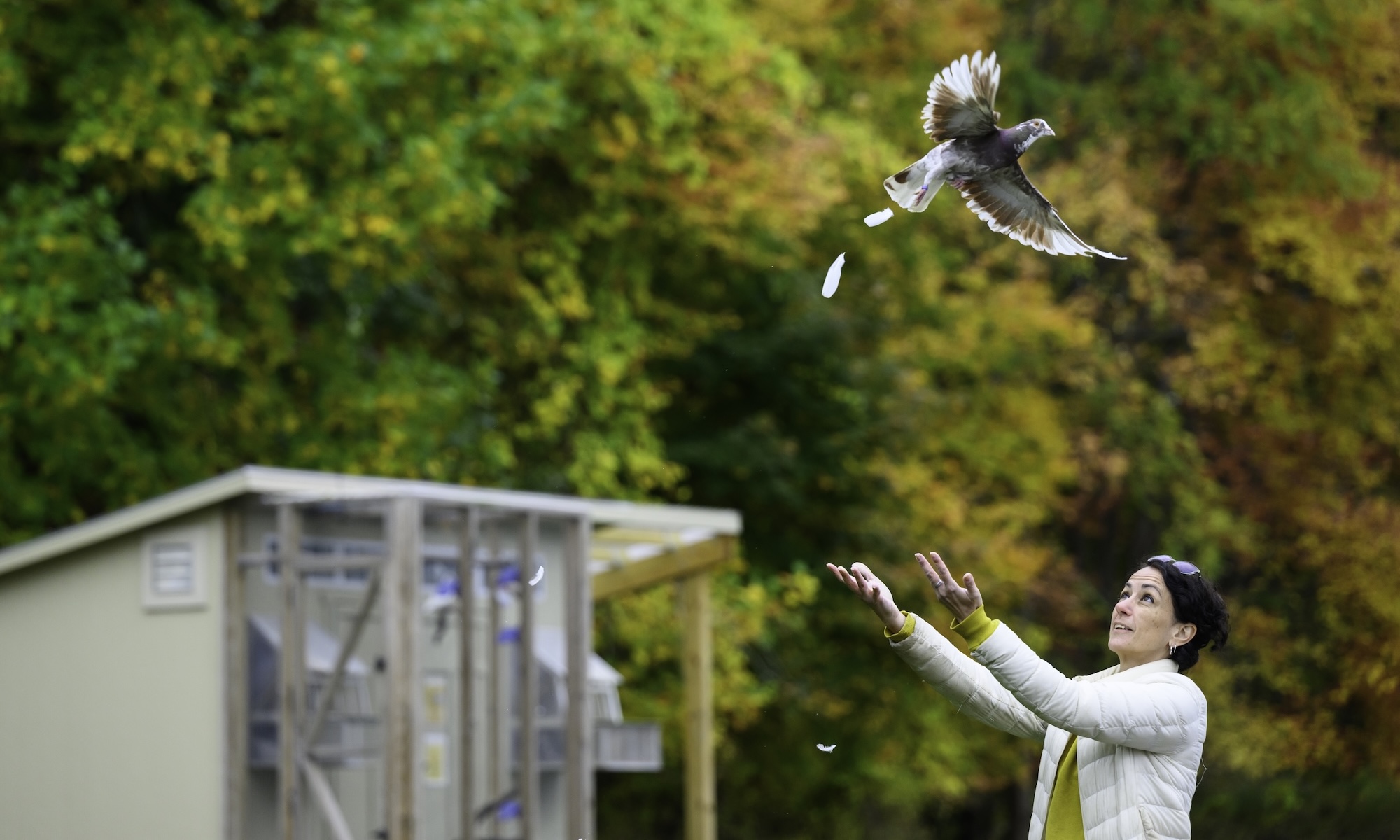The British Prime Minister also accepted an honorary doctor of laws degree in an address that urged Anglo-American unity in the fight against the Nazis.
The University has a proud past of commencement speakers and honorees but the 91st commencement ceremony on June 16, 1941, was particularly noteworthy.
Eastman Theatre was packed as University President Alan Valentine presented an honorary doctor of laws degree to British Prime Minister Winston Churchill, who accepted the honor from London through a trans-Atlantic radio address that urged for Anglo-American unity in the fight against the Nazis.
“United we stand. Divided we fall. Divided the dark ages return. United we can save and guide the world,” Churchill said to close his dramatic 10-minute address, which was broadcast by WHAM radio in Rochester in partnership with NBC radio and the BBC—and took several months to coordinate.
“An enthusiastic audience applauded the remarks for quite as long as the incomparable Briton had spoken,” notes Arthur J. May in The History of the University of Rochester 1850–1962.
Listen to Churchill’s speech (full transcription)
The view from Rochester Review
An excerpt from an article in the June-July 1941 edition of Rochester Review, headlined “Commencement Rites Span Atlantic as Winston Churchill Gets Degree,” describes the historic event.
Members of the Class of 1941 will probably remember their Commencement day for many years to come.
For the first time in the history of Rochester, and probably for the first time anywhere, the trans-Atlantic radio was invoked to bring together, vocally at least, the recipient of an honorary degree and its donor, Winston Churchill, Britain’s prime minister, in historic Downing Street, London, listened while Alan Valentine, University of Rochester president, cited him as the ‘symbol of Britain aroused—stout in heart, direct in speech, cheerful in reverses, calm in confusion.’ Millions of Americans and Britishers heard the president’s words, and heard too the ringing phrases of Prime Minister Churchill’s reply.
It was Winston Churchill’s first speech prepared exclusively for American consumption since he took the reins from the faltering Chamberlain. It was a shrewd speech, obviously written by a man who understands Americans thoroughly. He recalled that his grandfather, Leonard Jerome, had lived in Rochester, and had published a newspaper here, even though he forgot that the newspaper was The Rochester American and not The Plain Dealer.
There was in his address the assured British confidence in ultimate British victory. There was, also, an appeal for American assistance in lessening ‘the length and the perils of the journey that will have to be made.’ He reminded Americans that one united gesture by the peoples that now lie crushed by the Axis would, if made in time, have halted the dictators. They did not act together, so they fell separately, under the impact of ‘brutal violence, poison from within, subtle intrigue.’ He ended his ten-minute address with the significant challenge that ‘United we stand. Divided we fall. Divided the Dark ages return. United we can save and guide the world.’ And there was little question but that his ‘we’ included not only Britain and her dominions—‘the old lion with lion cubs at her side—’ but the United States as well.
The Eastman Theater was crowded with spectators, although the plan to award a degree to Prime Minister Churchill, across 3,000 miles of the Atlantic had been announced only the day before. The secret has been well kept. There had been vague whispers that an additional honorary degree would be given, probably in absentia, at the Commencement ceremonies, but only a handful of University officials knew of the project until it was revealed to the Board of Trustees at its meeting on Saturday, two days before the event.
Noel Hall, British Minister at Washington, old friend of the Valentines, was on the platform to receive the parchment scroll proclaiming Mr. Churchill an honorary alumnus of the University of Rochester. The envoy’s morning garb of gray-striped trousers and cutaway was in sharp contrast to the reds and greens and purples decking the shoulders and chests of the faculty clustered on the Eastman stage. (The professors turned out in such unprecedented numbers that some of them had to execute and about-face when the academic procession came down to the front of the theater, and sit in the bleachers with the graduates.)
George Washington Carver honored at 1941 commencement
“If the degree to Churchill was the most memorable the U. of R. had ever granted, a second worthy of note was also bestowed in 1941 on George Washington Carver,” writes Arthur J. May in The History of the University of Rochester 1850–1962.
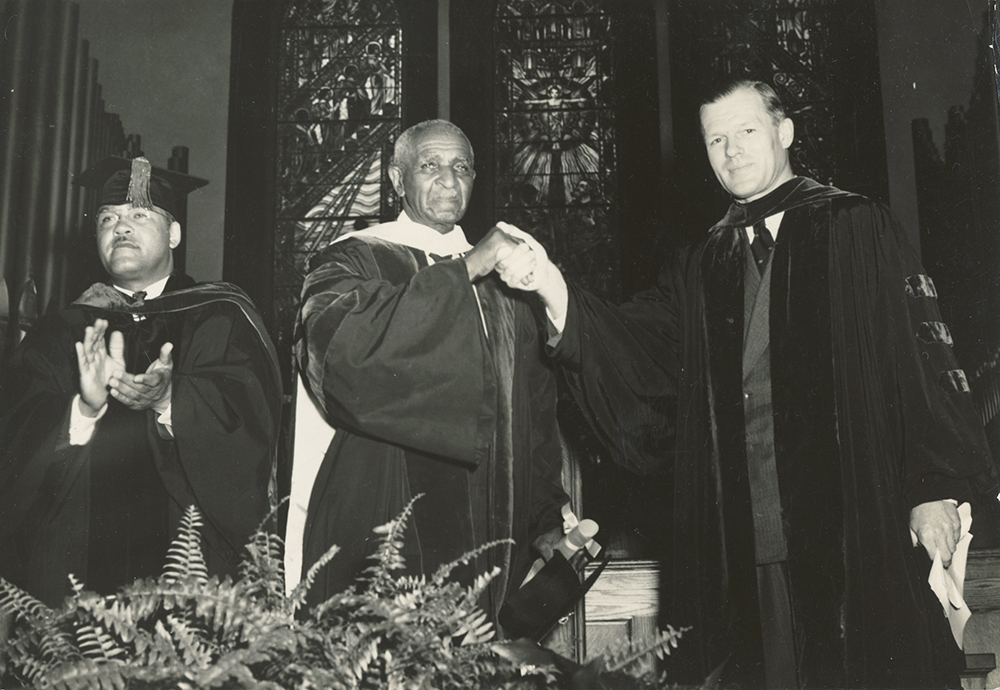
Carver, who led the agricultural department at the Tuskegee Institute for nearly 20 years, was known for his research and innovative educational programs and for the development of a variety of uses for crops such as cow peas, sweet potatoes, and peanuts.
Illness prevented Carver from receiving the honorary doctor of science degree in Rochester so Valentine flew to Alabama to present the diploma.
Also receiving honorary degrees in 1941: Robert Patterson, undersecretary of war, who delivered the Commencement address; Eve Curie, daughter of Marie and Pierre Curie; Warren Longcope, physician-in-chief at Johns Hopkins University; Rene Jules DuBos of the Rockefeller Institute for Medical Research; Mary Gannett, a social activist in Rochester; and Frederick Stock, director of the Chicago Symphony Orchestra.
A proud past of speakers, honorees
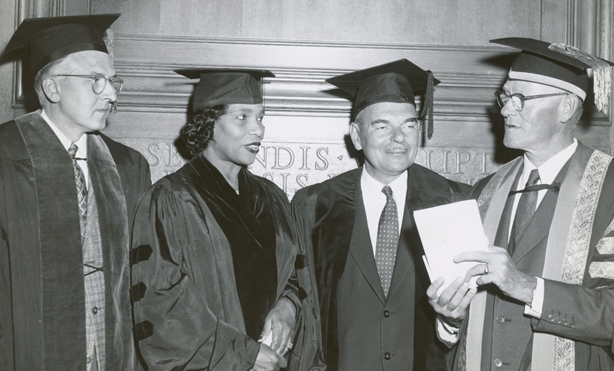
The practice of having an outside commencement speaker at the University began sometime in the early 20th century. During the 1970s and 80s, speeches came from recipients of honorary degrees. In the late 1980s, the practice of having a commencement address was revived, although the address was typically given near the end or middle of the ceremony instead of at the beginning.
Select speakers and honorary degree recipients from commencement ceremonies over the years include:
1920: Dwight D. Morrow, businessman and partner of J. P. Morgan
1921: Eliot Wadsworth, assistant secretary of the US Treasury
1922: George Wharton Pepper, senator from Pennsylvania
1928: Robert Alexander Falconer, president of the University of Toronto
1929: George Daniel Olds, president emeritus of Amherst College
1931: John Huston Finley, associate editor of the New York Times
1932: William Richards Castle Jr., undersecretary of the US Department of State
1934: Wilbur L. Cross, governor of Connecticut
1935: William Mather Lewis, president of Lafayette College
1936: Pulitzer Prize–winning journalist Walter Lippmann
1941: British Prime Minister Winston Churchill received an honorary degree and addressed graduates via a live radio broadcast from Great Britain. Also during the ceremony, scientist George Washington Carver of the Tuskegee Institute received an honorary doctor of science degree.
1942: H. J. Cody, president of the University of Toronto
1955: Allan Nevins, Civil War historian
1957: Former New York Gov. Thomas E. Dewey received an honorary degree.
1958: Robert M. Hutchins, chancellor emeritus of the University of Chicago
1962: John W. Gardner, secretary of the US Department of Health, Education, and Welfare
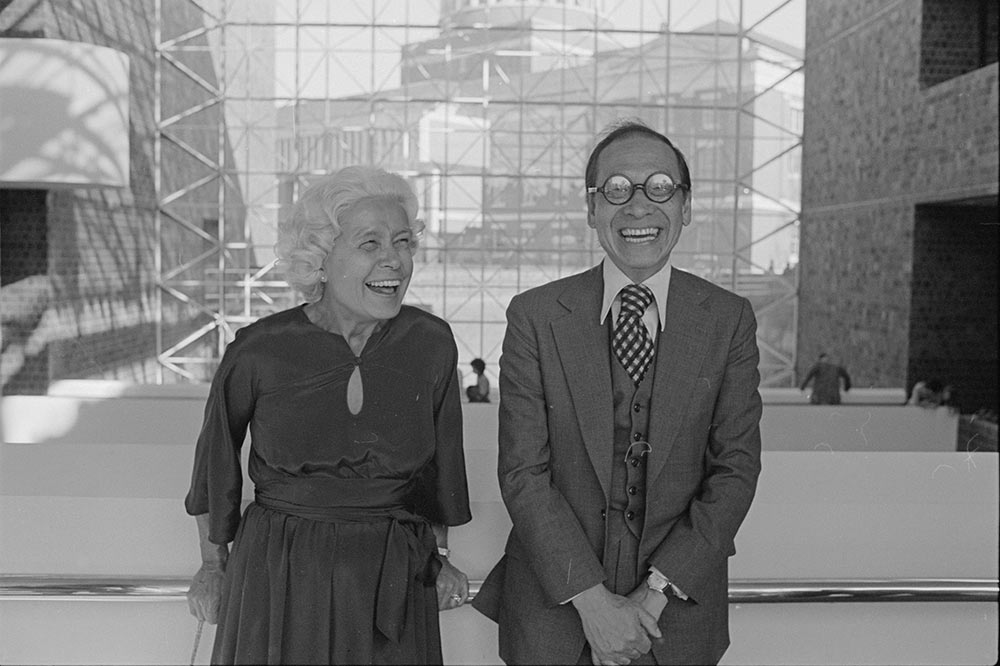
1963: Edward A. Weeks, editor and essayist at the Atlantic Monthly
1964: Wyoming Sen. Alan Simpson received an honorary degree.
1966: Richard Nixon, then a former US vice president, addressed the graduates.
1969: Edward H. Levi, president of the University of Chicago
1973: Rabbi Philip S. Bernstein, whose papers are housed in Rush Rhees Library, presented the invocation.
1982: Wilson Commons architect I. M. Pei received an honorary degree.
1985: The Most Reverend Desmond Tutu, archbishop of Cape Town, received an honorary doctor of divinity degree.
1986: Garth Fagan, Tony Award–winning choreographer, received an honorary degree.
1990: Historian Henry Louis Gates Jr. received an honorary doctor of humane letters degree.
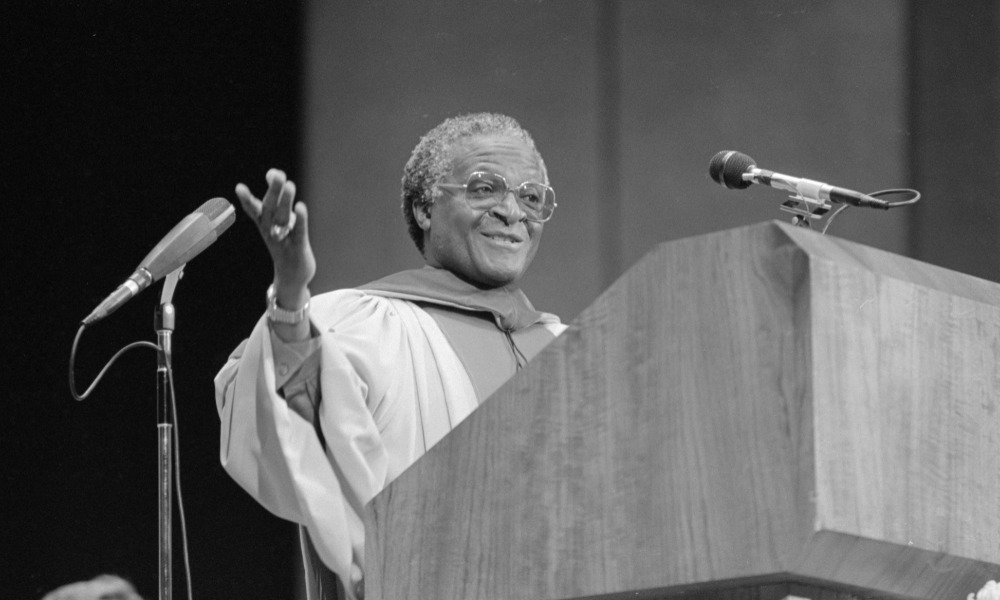
1994: New York Sen. Daniel Patrick Moynihan and Pakistani President Farooq Ahmad Khan Leghari, whose son was graduating with a BA in political science, received honorary degrees.
1995: Elizabeth Hanford Dole, cabinet secretary under presidents Ronald Reagan and George H. W. Bush, addressed the graduates and received an honorary degree.
2003: Writer John A. Williams, whose papers are housed in Rush Rhees Library, received an honorary doctor of humane letters degree.
2005: Robert B. Wegman, founder of the Wegmans grocery chain, received an honorary degree.
2007: Shirley Ann Jackson, president of Rensselaer Polytechnic Institute, and economist and Nobel Laureate Robert Solow received honorary degrees.
2008: Xerox CEO Ann Mulcahy and law professor and noted legal scholar and commentator Arthur Miller ’56 received honorary degrees.
Recent Commencement speakers are featured here.
This page was originally posted in May 2016 and updated in April 2025.



